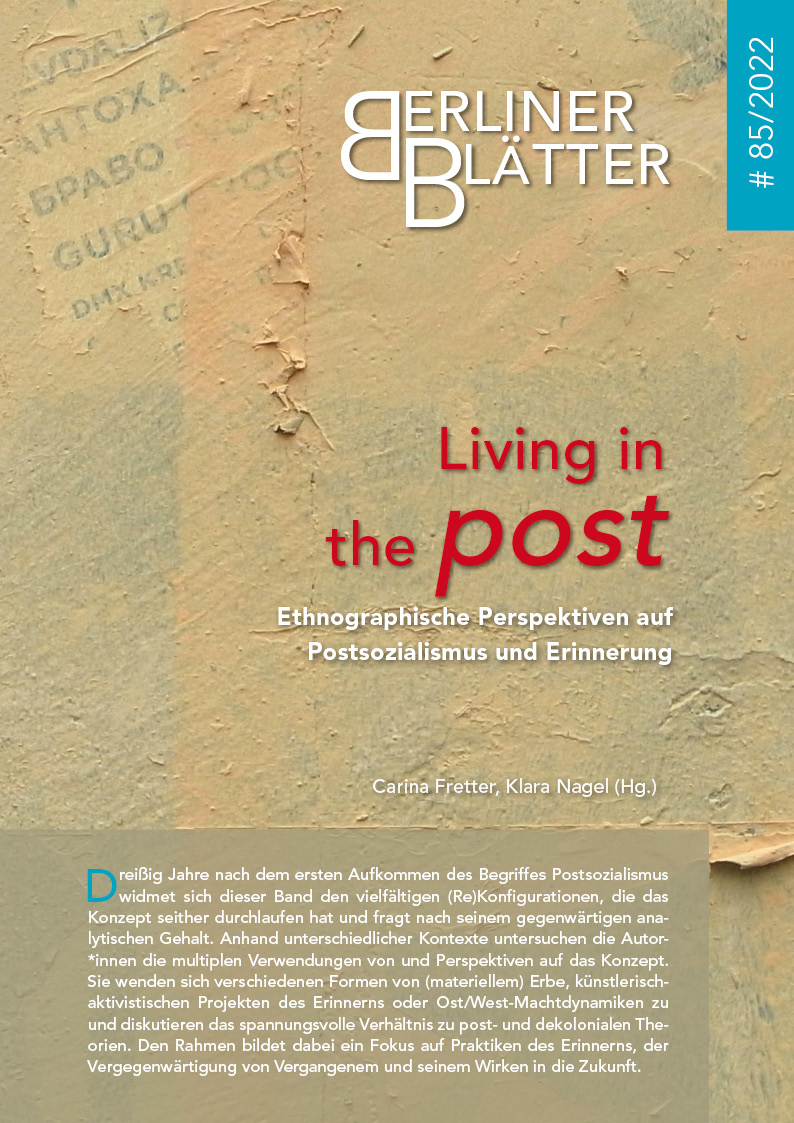Who Is Living in the Post?
Perspectives of Academics from the GDR on German Reunification and the Post-Transition Period
DOI:
https://doi.org/10.18452/24000Keywords:
reunification, postsocialist subjects, biographical interviews, West/East divergences, evaluationAbstract
This article considers the perspectives of academics from the GDR on German reunification and the post-reunification period as experiences of post-socialist subjects located in a West/East power structure that is still effective today. I take an ethnographic look at the memories of post-socialist subjects with the aim of differentiating discourses of memory regarding German reunification as well as the period after the reunification. First, I argue for the appreciation of East German experiential richness with the double socialization/culturalization that people from the GDR experienced by joining the Federal Republic in 1990 and living in two different systems. I then address the clash of West and East German academic systems with the help of the evaluation experience. Looking back at the evaluation helps to understand contemporary power relations, such as the underrepresentation of East Germans in the elites. Finally, basing my discussion on an experience of discrimination in the science system of reunified Germany, I consider West/East divergences.
Downloads
Published
How to Cite
Issue
Section
License
Copyright (c) 2022 Berliner Blätter

This work is licensed under a Creative Commons Attribution-NonCommercial-ShareAlike 4.0 International License.





